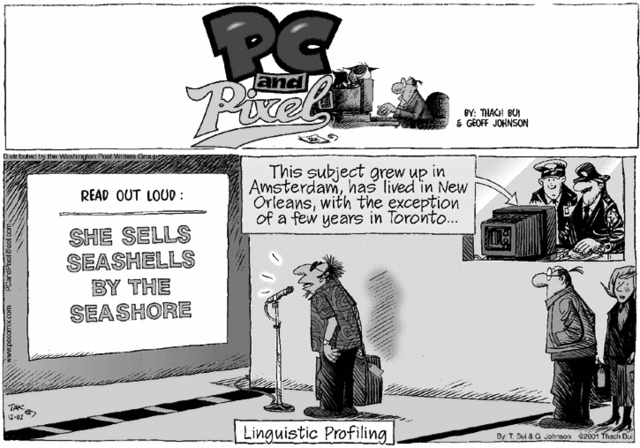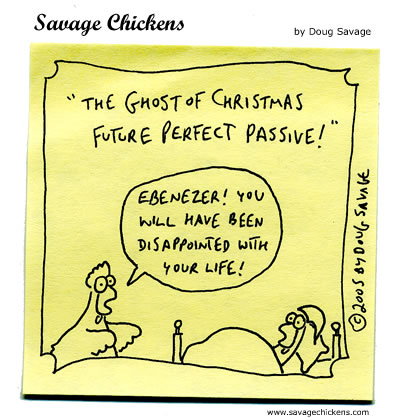Yesterday's email brought this sensible question from Judith Parker, a middle-school teacher at The Philadelphia School:
In the grammar text we are perusing, the concept of modals has raised its head. The words "The nice thing about modern grammarians is that they have reduced the number of TENSES in English to just two, PRESENT and PAST. Notice even WILL (formerly considered to represent the future tense) is really a PRESENT TENSE MODAL expressing present time intent or will…..)"
The class and I are perplexed. How wide-spread is this thinking? Can you explain this, particularly the WHY this change came about, and let us know how widely accepted this concept is? It has not crept into most grammar books that kids use. I told them that I would ask a linguist about this since my linguistic studies are in a distant past.
Let me try to give a short answer to start with.
It's convenient to talk about past, present, and future time, and it's convenient to call the commonly-associated English verb forms past, present, and future tense: "we liked it; we like it; we'll like it." But when you look more carefully at the whole pattern of possibilities for English tensed verbs, I think that you (and your class) will see the force of the argument that English doesn't really have a future tense form, even though it has many ways to express a future-time meaning.
it's true that a common way to express a future-time meaning is indeed to use the auxiliary verb will — but from a syntactic point of view, will is used in the same way as the class of words generally called "modal auxiliaries", such as can, may, might, must, should, and would.
Furthermore, a closer look at the meanings of will suggests that it doesn't really express future time, but rather has the same sort of relationship to time-meanings that (for example) may does.
The terminology remains variable, but at least since Otto Jespersen a hundred years ago, many grammarians working on English have taken all this to mean that English has only two basic tenses, present and past. (Well, Jespersen called the past tense by the old-fashioned name "preterit" — but as I said, the terminology varies.)
Read the rest of this entry »
 Just in time for the holiday season:
Just in time for the holiday season: 
